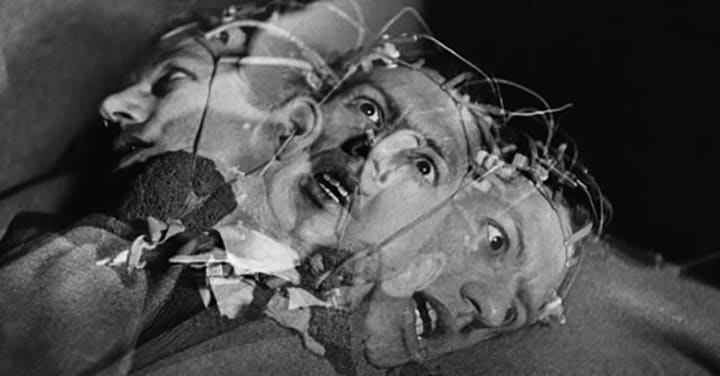Robert Helms 'Guinea Pig Zero'
With over 100 clinical experiments under his belt, Robert Helms is 'Guinea Pig Zero'.

Our country’s pharmaceutical industry demands rigorous testing of potential drug agents, human trials that sometimes drag on for weeks or months. Test subjects must often monotonously return to get blood drawn, abstain from normal activity, or keep meticulous notes about their side effects. But, at the end of the trial, it’s a quick couple thousand dollars in your pocket. This is precisely the kind of work that draws those on the margins of society, those who are willing to dose themselves with the latest psychiatric concoction and live in a confined clinic for a few weeks. And we need them—these guinea pigs. Without reliable test subjects, America doesn’t get its drugs.
Robert Helms is among the most outspoken human guinea pigs. He took part in over 100 trials over the years, and in the process created “Guinea Pig Zero”. It has become legendary in the realm of medical lore. In it, he catalogued experiences in guinea pigging and its human costs. We talked with Helms about his memories from his guinea pig days and why everyone wants to get into drug trials.
One man, 100s of experiment and a story that needs to be told. Guinea Pig Zero by Robert Helms, gives a first hand account into the secret world of American medical research.
The Interview

KB: How did you become involved in the medical research community as a test subject? Can you recall the first study advertisement you saw or the first time you realized you could get paid for being in studies?
Helms: It was way back in something like 1990 that I first attempted it. I just knew a lot of people in the neighborhood here—in those days that was when there were a lot of squatters here. A lot of them were my friends. They would have all sorts of marginal jobs, like exotic dancer or bike messenger or just whatever. And they would also be doing other things, like they were artist or in college or graduate students sometimes. They all wanted to have a way of making money that did not hold up their entire life or hold them to a hard schedule.
So, one of the easy ways to do that at the time—still pretty easy, I guess—is volunteering for studies. I was hearing all about it and I wanted to do it around 1990. However, I had a vasovagal response when they first put the catheter in my vein [during my first study].
What exactly happened? You passed out?

It’s the connection between your vein and your nervous system. They call it a vasovagal syncope. It happens when they stick a needle in your vein. I think it’s sort of an unconscious state. Anyway, it happened to me and they pulled me out of the study because of that. There was a lot of money—there was a couple thousand involved. It was sort of an embarrassing disaster.
It was a long time before I started the zine, about five years later. In the meantime, I started a union campaign in the workplace I had, which was taking care of [mentally handicapped] people in group homes. For four years, I was recruiting workers into the union, the Healthcare Workers’ Union. It was a really good paying job, but then I got burned out. So I went back on unemployment and went back to doing studies, which was plenty of money, and I just continued activism over the years.
There was Dishwasher zine—it was a very interesting zine about a boring job. That was a big, successful popular zine by 1995, when I started to do studies on a regular basis. In the meantime, when I was doing union work, I was continuously hearing about guinea pigging. It was all the same people, and even more, starting to do it and telling me about it all the time. In fact, one of my stories in the zine was about my friend who went crazy during a study. It was a big upset in the whole neighborhood, not just for me. He was like my best buddy. It was a big disturbance for everyone around here that knew him.
Was this a study for psychotropic drugs?

It was for [pauses to think] Paxil. The antidepressant Paxil and Seldane, the antihistamine, in combination. The reason they were doing the study was because the SSRI antidepressants were reacting with Seldane and other drugs, but Seldane was notorious for driving people into this total delusional dream world for weeks on end when they did it in combination. They eventually took Seldane off the market because it had interactions with other drugs as well.
Here was one of the personal clear examples of why those two drugs should not be used in combination. He went really loopy. He was just completely—you can read the story somewhere. It might just be in the book and in the zine, but it was the “SmithKline Beecham Debacle of 1996,” that’s what I called it. That was right at the beginning of when I started doing studies.
That didn’t deter you at all?
It didn’t deter me more than I already was disinclined. It sort of just galvanized my determination never to do a psychiatric drug study. I never did, except one which was not that kind. It was much more...it was a drug that wasn’t a new, experimental drug. They already knew what it was going to do. It was just going to make me groggy and grouchy. That’s exactly what it did.
How many trials would you say you’ve been in since you started in the 90s?

I’ve never counted exactly, but it was something like 75-100. That’s a rough guess. It was probably not less than 75. When I was doing the studies in the 90s up until 2003, I never took any drugs at all. No drinking at all. I didn’t smoke, drink, or use prescription drugs, or street drugs.
Was this because you didn’t want to counteract with anything in the studies or you didn’t want to make yourself ineligible for the study?
That was the accidental reason, but it was because I had sworn off drugs and alcohol because of my alcoholic teenage years. I had my own personal rule and principles. I just didn’t touch anything. I was Mr. Clean on that particular line of thought. When I needed to do the studies and have a clean screening, that was just nothing. I was just doing what I was always doing.
You were the perfect study participant in that way.
The only thing I ever really screwed up on when getting ready for a study was caffeine. I used to drink pots and pots of coffee. Like, something like three pots of coffee a day. Espresso. It was a ridiculous amount of caffeine. They’d go in and say, “How much coffee do you drink?” I’d say, “Well, two or three cups a day.” That was a normal response, what normal coffee drinkers do is one or two cups of coffee in the morning and one in the afternoon.
That kind of brings up an interesting point. How often did you feel that you or others gave the study the answers that you knew were in the range of normal or you knew they wanted to hear?
Well, pretty much everybody who did this on a regular basis told some lies, at least. One of the questions is, “How long has it been since you last did a study?” And the answer you want to give to get the job is, “It’s been around 6 or 8 months.” Or you tell them, “The last time I was here, that was the last study I did.” That’s very common and it’s a lie. It’s very typically not true. What the person really did was get out of a study a week and a half ago. All they’re doing is going from study to study as quick as they can. On the other side of the desk where the recruiter is asking the questions, that recruiter, unless they just took the job yesterday, they know 90% of the people are lying about that.
But, as a recruiter, you’re putting out an ad and you’re saying, “We want people who can pass this screening and who will be reliable.” They won’t get stoned on heroin during the study which would make all the results garbage. They won’t lose all the money they invested in the study. They don’t want people who won’t misunderstand the instructions or get bored sitting in a hospital for weeks on end. It's just so fantastically boring. Like being in jail. If you’re going to flake out for any of these reasons, you’re not the person they want. They have to just ignore the fact they know people are lying about some of the things. They’re doing it so they can get reliable people into the study. It’s not like they’re doing it just to be completely morally savage.
So it’s more about the reliability of the participants?

If they don’t turn the blind eye to something like a lie about how long it’s been since you did a study or a lie about the caffeine—in other words, they weren’t testing for caffeine in my blood. They just took my word for it. If they got fanatical about it, they’d just have a dramatic drop in the number of people who were going to be reliable and the number of people who were going to finish the study. And so, it would completely destroy the whole process they were doing. Their recruiting and volunteer lists are proprietary. Each recruiter has their own list of people and they don’t, legally speaking, have the other recruiter’s lists. So they can’t say, “I know you did a study last week.”
I wonder if the internet is changing that at all. Maybe everything is still proprietary, but it seems like when you were doing this in the 90s, this might have been before there were larger databases different recruiters could share.
But they don’t want to share. First of all, they can’t share. It’d be a breach of patient privacy and they would be opening themselves up to lawsuits. The guinea pigs could sue them or there could be a public scandal. They could be giving out a person’s information, when that’s not what the person agreed to. Besides, the company they’re working for, it doesn’t serve their interests for that to be shared for other companies, because it would make them more difficult for them to argue that it could be done in an ethical way because people do go from study to study to study.
You’re like an actor when you volunteer for a study as a guinea pig. You don’t step out of character. Once you say anything that is out of character, everything falls apart. You can’t do the study and you blew it. Like an actor on the stage does not stop and take a phone call on their cell phone when they’re playing Hamlet on the stage. You just don’t do it. It’s wrong. That’s how far out if would be for a guinea pig to suddenly become honest.
About the Creator
Kelly Bourdet
Senior Editor at Vocativ. Obsessed with Isaac Asimov, almond butter, and hiking in upstate New York.






Comments
There are no comments for this story
Be the first to respond and start the conversation.